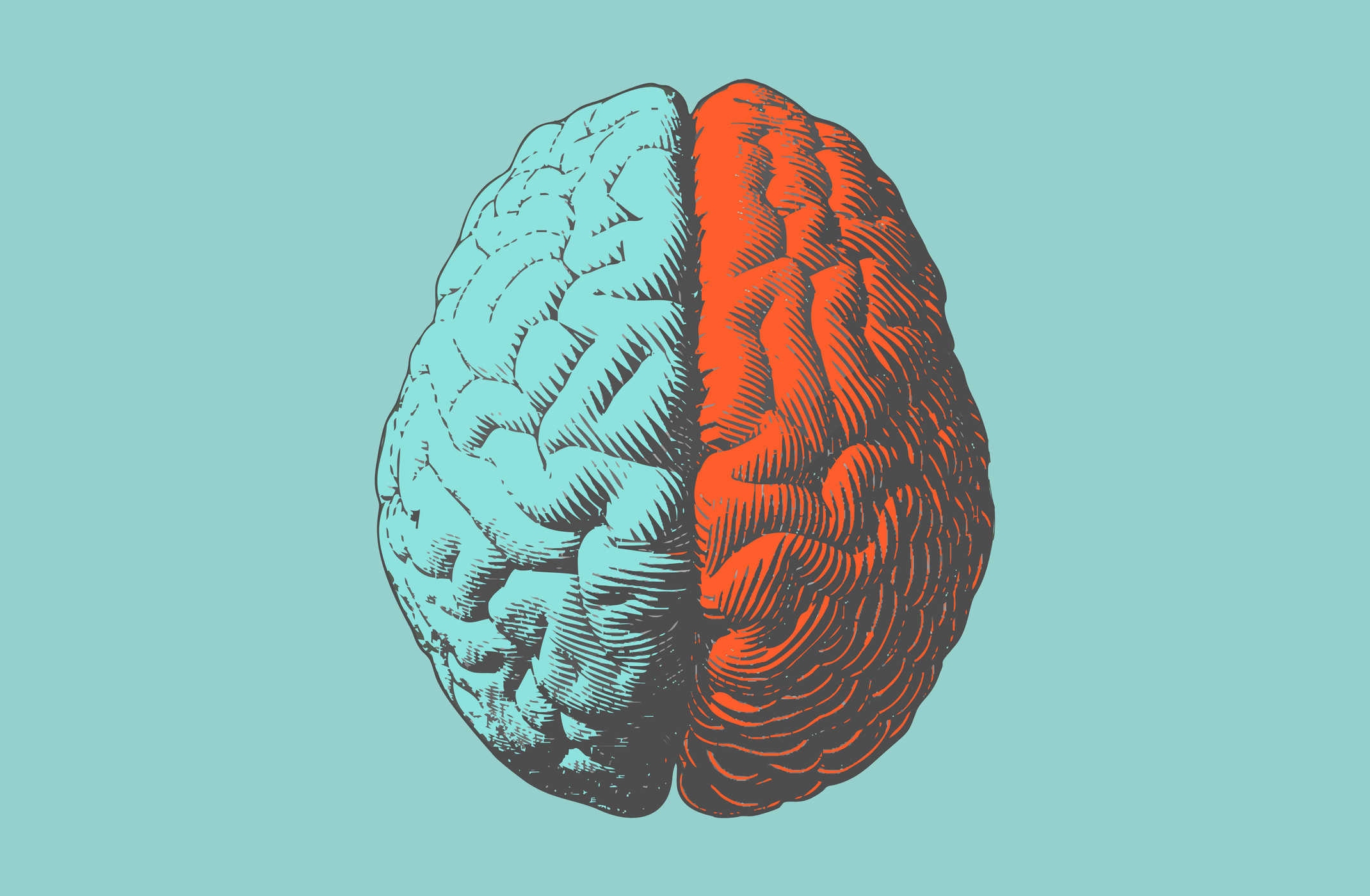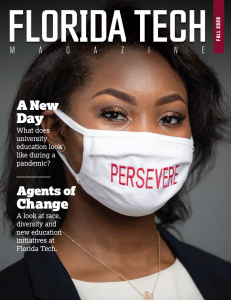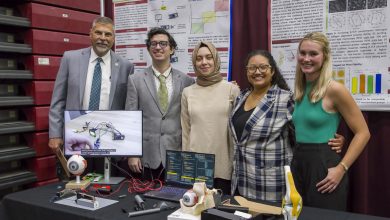The Balancing Act of Understanding Concussions
Though growing in prominence over the last few years thanks to high-profile incidents involving professional football players and a Will Smith movie bearing their name, concussions still remain somewhat of a mystery.
There is much still to be learned about the brain injury, but research at Florida Tech is improving our understanding of how to better evaluate and diagnose them in college-level athletes.
A recent research paper, “Change in Balance Performance Predicts Neurocognitive Dysfunction and Symptom Endorsement in Concussed College Athletes,” published last month in the Archives of Clinical Neuropsychology, explores an athlete’s change in balance performance in relation with neurocognitive functioning or symptom endorsement.
Florida Tech Ph.D. students Andrew DaCosta and Andrew Crane, former Florida Tech psychology professor Frank Webbe, and university psychology associate professor Anthony LoGalbo put together the paper. Their research project also won a student poster award at the National Academy of Neuropsychology conference in November.
Going off the hypothesis that the magnitude of change in balance performance from baseline to post-trauma would have unique predictive power in identifying acute clinical outcomes, the team looked at 68 Florida Tech student-athletes across multiple sports that had completed the university’s standard preseason baseline testing and later suffered a concussion. The results discovered that the degree that balance performance changed was a better predictor of neurocognitive dysfunction and endorsement of “balance problems” than post-trauma balance performance alone.
By analyzing the importance of post-concussion balance changes, the findings may lead to a greater focus on balance during initial baseline tests.
DaCosta said the research initially began with considering balance from a recovery perspective, which led to them looking at balance changes overall, rather than just after the concussion. The team noticed that those athletes with bigger balance changes were having worse outcomes in the acute phase, something that was previously overlooked as researchers analyzed symptoms and problems with memory and reaction time.
They also noticed that athletes having poor balance does not always mean that they have a concussion. In working with the university’s training staff through concussion referrals, when athletes didn’t report balance issues but nevertheless had trouble balancing, the researchers pointed to the athlete likely having poor balance normally, as can be the case in taller athletes for example, due to their higher center of gravity. However, the researchers also found that individuals who normally have great balance but demonstrate a notable decline in balance and report balance problems exhibited poorer post-concussion neurocognitive performance, potentially suggesting a more acute injury.
The evolution of concussion research has changed rapidly in the last 10 years, primarily because of the inexact science behind it. What went from having your “bell rung” and recovering with “smelling salts” eventually led to being removed from competition for weeks and often being prescribed a remedy of sitting in a dark room until symptoms subsided. Current guidelines allow for most athletes to return to some of their normal daily routine and activity within a matter of days, and ultimately return to participation in sports after their symptoms resolve, their neurocognitive performance improves, and they have been cleared by a healthcare professional.
While there isn’t an exact set of conditions that will cause or prevent concussions, Florida Tech has found value in baseline testing. While some universities do a student-athlete baseline test just once during their four years at the school, Florida Tech’s standard preseason test is done annually.
“What our research lends some credence to is without a baseline balance assessment, you would have less information when you’re making clinical decisions about a person having a concussion after their evaluation,” DaCosta said.
For Andrew Crane, who, like DaCosta, is in his third year in the Ph.D. program, the field is providing new opportunities to learn more about these frightening injuries.
“With concussions it can be really tricky because we don’t really know the answers yet, but that’s also the exciting part about it, too, diving into a field that’s relatively new and evolving constantly,” Crane said. “I feel like each week we see a different study being published that’s telling us something new about concussions.”
This story was featured in the winter 2021 edition of Florida Tech Magazine. Read the full issue here.






